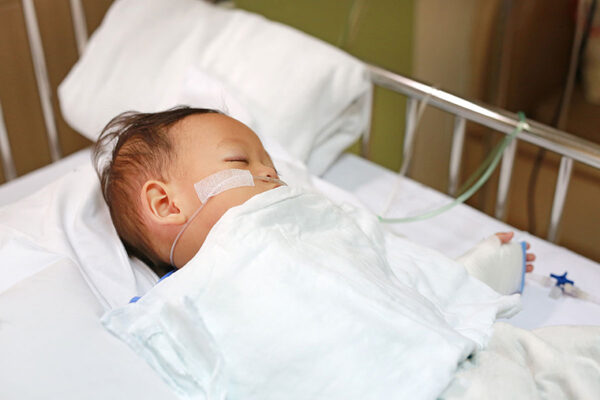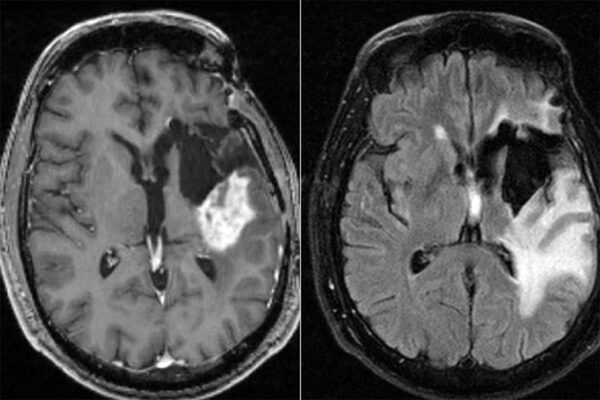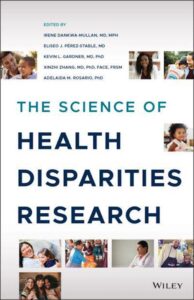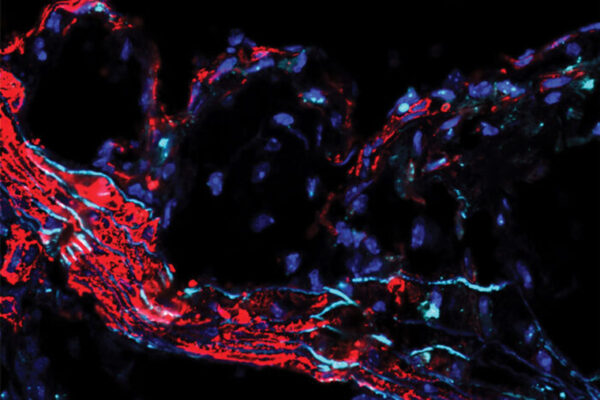Implementation science should give higher priority to health equity
Moving scientific research results into public health and patient care more quickly could have a significant impact on health equity, finds a new paper from researchers at the Brown School at Washington University in St. Louis.
Study predicts which kids hospitalized with RSV likely to worsen
Children hospitalized with breathing problems due to infection with respiratory syncytial virus (RSV) are likely to get sicker and remain hospitalized if they have high levels of defective copies of the virus, according to a new study by researchers at the School of Medicine.
Holmes awarded HHMI fellowship for promising early-career scientists
Virologist Autumn Holmes, a postdoctoral researcher at the School of Medicine, has been named a Hanna H. Gray Fellow by the Howard Hughes Medical Institute (HHMI). The fellowship provides up to $1.4 million over eight years to outstanding early-career scientists.
Mice with hallucination-like behaviors reveal insight into psychotic illness
A computer game that induces mice to experience hallucination-like events could be a key to understanding the neurobiological roots of psychosis, according to a School of Medicine study.
Chemo for glioblastoma may work better in morning than evening
A new study from Washington University suggests that a minor adjustment to the current standard treatment — giving chemotherapy in the morning rather than the evening — could add a few months to patients’ survival.
Charles J. Kilo, professor of clinical medicine, 94
Charles J. Kilo, MD, a former professor of clinical medicine at the School of Medicine, died of pneumonia March 15 in Naples, Fla. He was 94. Kilo and collaborators at the School of Medicine were among the first to demonstrate that diabetes complications are linked to the duration of the disease and the degree of blood sugar control.
The Science of Health Disparities Research
“The Science of Health Disparities Research” is an indispensable source of up-to-date information on clinical and translational health disparities science. Building upon the advances in health disparities research over the past decade, this authoritative volume informs policies and practices addressing the diseases, disorders, and gaps in health outcomes that are more prevalent in minority populations […]
An receives grant to study egg consumption
Ruopeng An, assistant professor at the Brown School, has received a $90,000 three-year grant from the Egg Nutrition Center for a project titled “Influence of Whole Egg Consumption on Diet Quality and Cognitive Function among U.S. Older Adults.”
State laws can bolster physical education among children, study finds
The presence and strength of state physical education (P.E.) laws positively affected P.E. attendance and the frequency and duration of physical activity throughout the day, suggests a new analysis from the Brown School.
Scientists find genetic link to clogged arteries
A new study from the School of Medicine has identified a gene — called SVEP1 — that makes a protein that influences the risk of coronary artery disease independent of cholesterol.
Older Stories









